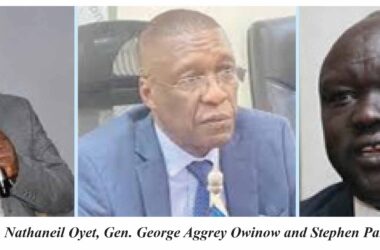By Bida Elly David
A serious government intervention is required as the war Sudan hits hard on South Sudan’s free market economy, while black market speculators take control of the foreign exchange market, an economic analyst noted. Marketers
South Sudan is experiencing further hyperinflation following the political instability in Sudan which is an important neighbor helping the young East African country export its crude oil to the international market.
The South Sudanese Pounds fell to a record low against the US dollars as 1 USD sales at 980 SSP in the parallel market while the Central Bank rate stands at 920 per $1, a drastic decline the economist tied to Sudan’s one month war.
Abraham Matoch, an economic analyst, exclusively told No.1 Citizen Daily Newspaper that government has totally failed to centralize the economy, leaving black market speculators to monopolize markets.
“This economic crisis will never stop until we decide to intervene into the market, to fix prices of the exchange rate,” Matoch said.
The analyst cites challenges in cross border trade as a result of the war which attracts illicit trade.
“It is difficult for the current cross border trade to be stabilized because it is in a war situation where people run and smuggle goods.”
Matoch observed that the conflict in the Sudan will totally weaken South Sudan’s economic if the government doesn’t intervene to strengthen the country’s own economy,
“The crisis in Sudan especially in the border will have negative impact on South Sudan economy since there is no much control and trade will depend on smuggling” he said.
Most impact of the free-market economy will be felt by the innocent people as the runaway inflation characterized by fluctuating exchange rate hikes market commodities prices.
Abraham said that with the on-going clashes in Sudan, trade at the border has been difficult to restrict since influx of the people is at a high rate.
“The cross-border trade is totally at risk since traders will be operating without system”.
He said, “the current economic recession of the Sudan and South Sudan has got nothing to do with Central Banks rather depending on the stand of peace of the two countries.”
Matoch blame black market dealers who trade on money as commodity.
“The government has no means to intervene into the market to stabilize and control prices. The dollar is already rising because there are people who are trading on both currencies.”
“Wherever the money is a commodity, you expect prices to always go up indefinitely since there are no controls,” he noted.
For South Sudan to gain and strengthen her economy, Matoch said “the only way is for president Kiir to persuade the two Sudanese conflicting parties to sit down and negotiate to find solutions for peace.




